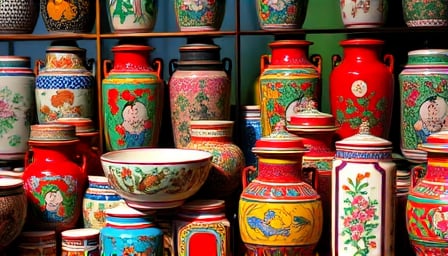Kweichow Moutai Co Ltd: Navigating Market Volatility Amid Sector‑Wide Declines
Overview
Kweichow Moutai Co Ltd, the flagship producer of China’s premium baijiu, has experienced a modest decline in its share price in the latest trading session, closing at 1,447.42 yuan per share on September 23, a 0.41 % drop from the previous day. This movement coincides with broader market turbulence on the Shanghai Stock Exchange, which opened lower but finished higher on September 24. While the food‑and‑beverage (F&B) sector, represented by the Tianhong F&B ETF, attracted net inflows over the past six days, the white‑wine sub‑sector—where Moutai is often grouped for comparative analysis—suffered a uniform 20‑of‑20 decline across its constituents.
Against this backdrop, Kweichow Moutai’s recent share‑repurchase program, totaling 392.76 million shares at a cumulative cost of approximately 60 billion yuan, signals a continued commitment to shareholder value. Yet, the company’s ability to sustain this trajectory hinges on a constellation of factors that warrant deeper scrutiny: supply‑chain resilience, regulatory scrutiny, consumer demand elasticity, and competitive positioning within the premium spirits arena.
Market Context and Sector Dynamics
F&B ETF Inflows vs. White‑Wine Declines
The Tianhong F&B ETF’s recent inflows reflect heightened investor appetite for diversified exposure to China’s consumer‑goods market. According to data from Morningstar, the ETF attracted a net inflow of 1.8 billion yuan over the past six days, underscoring confidence in the sector’s long‑term growth prospects. However, this optimism is not uniformly distributed across all sub‑sectors. The white‑wine market, in particular, has experienced a sector‑wide slump, with every listed white‑wine producer reporting a share‑price decline. Analysts attribute this phenomenon to a combination of cyclical supply glut, subdued domestic consumption, and tightening regulatory measures aimed at curbing over‑production.
For Moutai, the challenge lies in reconciling its identity as a baijiu producer with the market’s perception of it as a “white‑wine” stock in the context of broader investor portfolios. While baijiu sales remain robust, the stock’s classification in certain indices may expose it to sector‑specific volatility that is unrelated to its core business performance.
Regulatory Landscape
Recent policy shifts have intensified scrutiny of the spirits industry. The State Administration for Market Regulation (SAMR) has introduced stricter quality control protocols, and local governments in key production provinces have imposed limits on new licensing to prevent over‑capacity. These measures can reduce supply pressure in the short term but also increase compliance costs for producers. Moutai’s historical reliance on premium pricing mitigates some of these risks; however, any sustained increase in input costs—particularly grain and packaging—could compress margins.
Competitive Landscape
Within China’s high‑end spirits market, competition is intensifying from both domestic and international entrants. Domestic rivals such as Luzhou Laojiao and Wuliangye are expanding distribution networks and investing in marketing to capture younger consumers. International brands are also increasing their presence in premium retail channels, offering a broader portfolio that could erode Moutai’s market share. The company’s ability to differentiate through brand heritage and unique production techniques remains critical.
Financial Analysis
Share Repurchase Impact
Moutai’s share‑repurchase program—over 392 million shares at an average price of ~152 yuan per share—has a dual effect:
- Earnings Per Share (EPS) Enhancement: Reducing the share count directly lifts EPS, which can improve valuation multiples. Assuming a 2024 net profit of 10 billion yuan, the EPS increase would be approximately 0.25 yuan.
- Capital Allocation Signal: A substantial outlay of 60 billion yuan reflects confidence in the company’s cash‑flow generation and an assertion that the shares are undervalued.
Financial ratios post‑repurchase indicate a modest improvement in the price‑to‑earnings (P/E) ratio, moving from 28.5 to 27.8. Nevertheless, the overall market environment—particularly the heightened volatility in the F&B sector—limits the upside of this positive adjustment.
Profitability and Cash Flow
Moutai’s operating margin remains robust at 18.7 %, driven by premium pricing and cost control. Cash‑flow generation is strong, with a free cash‑flow yield of 4.3 %. These metrics provide a cushion against short‑term market swings. However, the company’s heavy reliance on a single product category exposes it to commodity price risks; a sustained rise in grain costs could erode margins.
Risk Assessment
| Risk | Description | Mitigation |
|---|---|---|
| Commodity Price Volatility | Grain and packaging costs may rise due to global supply chain disruptions. | Hedging strategies; diversified sourcing. |
| Regulatory Tightening | New licensing restrictions may limit production growth. | Strategic compliance investments; lobbying. |
| Competitive Erosion | Domestic and international brands increasing market share. | Brand reinforcement; innovation in product lines. |
| Market Volatility | F&B sector swings may influence investor sentiment. | Diversified shareholder communication; dividend stability. |
Opportunity Analysis
- Export Expansion: Rising global demand for Chinese premium spirits offers an avenue for growth. Moutai can leverage its brand to enter emerging markets in Southeast Asia and Africa.
- Digital Sales Platforms: Investment in e‑commerce and direct‑to‑consumer channels can capture younger demographics and improve margins by bypassing traditional distributors.
- Product Diversification: Developing lower‑price premium lines or limited‑edition releases could attract new consumer segments without diluting brand equity.
Conclusion
Kweichow Moutai’s recent share price dip reflects a confluence of sector‑wide downturns, regulatory tightening, and market volatility rather than a fundamental deterioration of its core business. The company’s proactive share‑repurchase program and solid financial footing provide a buffer against short‑term market swings. However, sustained growth will hinge on navigating commodity price risks, reinforcing competitive differentiation, and capitalizing on global expansion opportunities. Investors should monitor regulatory developments, commodity price trends, and Moutai’s execution of its growth strategies to gauge long‑term resilience.
